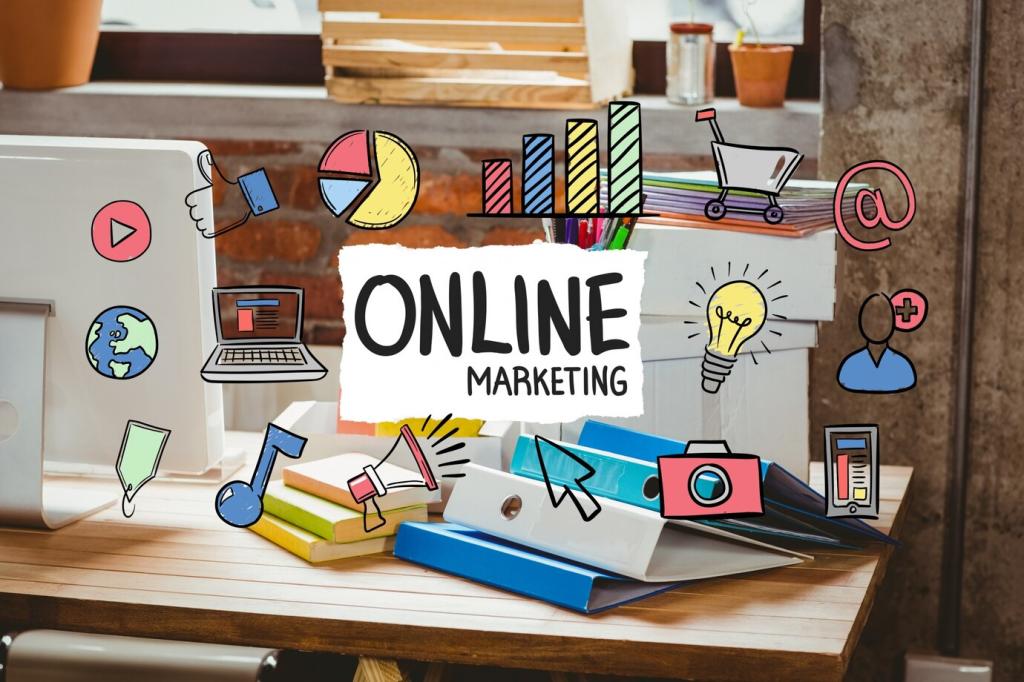
Mental Health Resources for Entrepreneurs: Build Resilience Without Burning Out
Chosen theme: Mental Health Resources for Entrepreneurs. Welcome, founders and builders—this is your friendly space to find tools, stories, and practical guidance that protect your mind while you grow your mission. Subscribe, comment, and share what you’re navigating so we can learn together.
Why Founders Need Mental Health Resources
Hustle culture glamorizes 100-hour weeks, but the real cost often shows up quietly: foggy thinking, irritability, and a creeping sense of emptiness. If you’ve felt your drive turning into dread, you’re not alone. Share one subtle sign you notice before burnout, and let’s crowdsource early-warning tactics that actually help.


Why Founders Need Mental Health Resources
Many entrepreneurs shoulder burdens in silence, worrying that vulnerability might unsettle investors or teams. Community shifts that narrative. Founder circles, mastermind groups, and private peer forums turn isolation into perspective. Comment with one group or meet-up you trust, and we’ll curate a living directory for readers.
Practical Toolkits and Apps That Support Your Mind
Quick mood tracking builds awareness before crises. Tools like Daylio or Reflectly help you log energy levels, triggers, and wins in minutes. Review patterns weekly to align your calendar with your best hours. Tell us what metrics you track—sleep, stress, focus—and we’ll compile founder-tested dashboards.
Practical Toolkits and Apps That Support Your Mind
Cognitive Behavioral Therapy exercises and mindfulness apps like Wysa, Headspace, or Calm fit into a commute or a pre-pitch ritual. Five minutes of grounding can shift your whole meeting. Try a one-week micro-practice and report back: what changed in your negotiations, hiring interviews, or investor updates?



Embedding Mental Fitness in Company Culture
Leaders set the tone. Share your boundaries, mention therapy without drama, and celebrate rest as strategic fuel. Use anonymous pulse surveys and ask, “What would make work feel more sustainable?” Comment with one script or policy that made conversations easier at your company.
Embedding Mental Fitness in Company Culture
Adopt realistic sprint cycles, no-meeting focus blocks, and written updates instead of constant pings. Track workload by team, not just outcomes, and rotate on-call duties. What’s one experiment—like a weekly quiet morning—you’ll try next? Report back in two weeks with what stuck and what failed.
Embedding Mental Fitness in Company Culture
Therapy stipends, mental health days, asynchronous communication norms, and wellness budgets beat flashy perks. Pair benefits with manager training on psychological safety. If you’ve implemented a benefit that employees genuinely use, share details so other founders can model it responsibly.

Sleep as a competitive advantage
Quality sleep sharpens judgment and emotional regulation. Aim for consistent bedtimes, cool rooms, and screens off an hour before bed. Consider wind-down routines like journaling or gentle stretches. Share your top wind-down ritual, and we’ll feature the most founder-friendly ideas in our next update.

Move your body, move your mood
Regular movement reduces anxiety and boosts cognition. Short, frequent walks between meetings beat sporadic marathons. Schedule non-negotiable movement blocks—calendar them like investor calls. Post your favorite quick routine, and tag what it helps with: focus, patience, or creative breakthroughs.
Money, Runway, and Mental Health
Scenario planning to reduce anxiety
Build three cashflow scenarios—conservative, baseline, and upside—and attach concrete triggers for each. This turns vague dread into executable steps. If a trigger hits, you already know what to do. Share your favorite planning template to help other founders breathe easier.
Negotiating with yourself and your investors
Set expectations early with investors about sustainable pacing. Communicate constraints clearly and request support, not just pressure. With yourself, renegotiate impossible personal deadlines that no longer serve real outcomes. What phrasing has helped you set a humane boundary without losing credibility?
When to pivot or pause
Decide kill or pivot criteria before emotions spike. Align your board and team on measurable thresholds and recovery plans. This protects your mind and your relationships. Have you used predetermined criteria to make a hard call? Tell us how it changed the emotional tone of that decision.

Community, Accountability, and Ongoing Learning
Entrepreneurs’ Organization, local mastermind circles, and indie hacker meetups offer perspective and accountability. Choose groups with confidentiality and gentle rigor. Drop a link to a community you recommend, and say who it best serves—solo founders, climate tech, or bootstrappers.

Community, Accountability, and Ongoing Learning
Recruit three to five advisors with complementary strengths—finance, product, operations, mental health. Set a regular cadence and clear asks. Add one mentor dedicated to your wellbeing. Share how often you meet and what questions spark the best insights for you.
